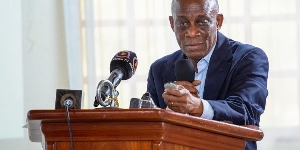Ghana stands to boost its GDP by US$3.74billion – growing from US$68billion to US$71.74billion – if it effectively implements the African Continental Free Trade Area (AfCFTA) Protocol on Digital Trade.
According to a report by ODI on the implementation of the AfCFTA Digital Trade Protocol in Ghana, exports could increase from US$22 billion to US$25.83 billion; underscoring the economic potential of leveraging the country’s digital economy under the Protocol.
The AfCFTA Protocol on Digital Trade aims to strengthen Africa’s digital economy while promoting intra-African trade and investment.
The report highlights that for Ghana this represents an opportunity to capitalise on its expanding digital sector, which has become a vital contributor to economic development.
In 2022, the nation’s digital economy contributed 4 percent of GDP valued at US$2.5billion. The fintech industry, driven by mobile money services, has been particularly dynamic – making Ghana one of the fastest-growing fintech markets globally. Over 70 fintech companies currently operate in the country, reflecting the sector’s rapid expansion.
Government initiatives – such as the Ghana Digital Agenda 2018 and the Ghana Beyond Aid Charter and Strategy 2019 – have laid the foundation for further growth. These policies are complemented by legal frameworks like the Cyber Security Act 2020 and Data Protection Act 2012, which aim to create a secure and efficient digital ecosystem.
“Ghana must focus on aligning its digital trade regulations with international standards to build trust in digital platforms and foster trade,” the report said. “Strengthening data protection laws and increasing investment in infrastructure are viewed as critical steps toward addressing these challenges.”
The report notes that significant challenges persist, including weak enforcement of digital trade regulations, inadequate harmonisation with international data protection standards and limited awareness of the Protocol among private sector players, which hinder progress.
“The digital divide remains a concern, with broadband access below 50 percent in northern Ghana compared to 50–90 percent in coastal regions. Additionally, insufficient investment in digital infrastructure such as data centers and cloud systems constrains the sector’s potential,” it stated.
“Bridging the digital divide and supporting micro, small and medium enterprises, especially those led by women and youth, is essential for creating a more robust digital economy,” the report noted.
To unlock full benefits of the Protocol, stakeholders have recommended developing a Ghana Digital Trade Strategy and Action Plan.
“This roadmap would guide efforts to enhance the digital ecosystem, improve stakeholder capacity and foster public-private partnerships for infrastructure development.”
Watch the latest edition of BizTech below:
Click here to follow the GhanaWeb Business WhatsApp channel
Business News of Monday, 2 December 2024
Source: thebftonline.com

















